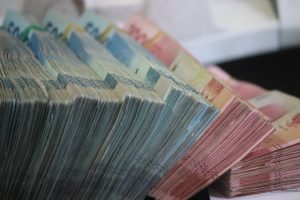Forex trading has become a popular investment option for people all around the world. It is a decentralized market where currencies are bought and sold. The forex market is open 24 hours a day, five days a week, and trades more than $5 trillion per day. However, like any investment, forex trading comes with costs. In this article, we will explore the different costs associated with forex trading.
Spread
The spread is the difference between the bid price and the ask price. The bid price is the price at which a trader can sell a currency, while the ask price is the price at which a trader can buy a currency. The spread is the cost of trading and is usually quoted in pips, which is the smallest unit of a currency price.
The spread varies depending on the currency pair being traded, the liquidity of the market, and the broker. Major currency pairs such as EUR/USD and USD/JPY have lower spreads compared to exotic currency pairs such as USD/ZAR and USD/TRY, which have higher spreads due to their lower liquidity.
The spread can be fixed or variable, depending on the broker. Fixed spreads remain the same regardless of market conditions, while variable spreads can widen during times of high volatility. Some brokers offer commission-based trading, where the spread is zero, but traders pay a commission on each trade.
Swap
A swap is the cost of holding a position overnight. Forex trading involves buying one currency and selling another currency. The interest rate differential between the two currencies determines the swap rate. If the interest rate of the currency being bought is higher than the interest rate of the currency being sold, the trader will earn a positive swap. However, if the interest rate of the currency being sold is higher than the interest rate of the currency being bought, the trader will pay a negative swap.
The swap is calculated based on the notional value of the trade, which is the amount of currency being traded. The swap is usually tripled on Wednesdays to account for the weekend.
Slippage
Slippage is the difference between the expected price of a trade and the actual price at which the trade is executed. Slippage can occur when there is low liquidity in the market or during times of high volatility. Slippage can be positive or negative, depending on whether the trader gains or loses money.
Slippage can be reduced by using limit orders instead of market orders. A limit order is an order to buy or sell a currency at a specified price or better. A market order is an order to buy or sell a currency at the current market price. Limit orders ensure that the trader gets the desired price, but there is a risk of the trade not being executed if the price does not reach the specified level.
Currency conversion
Forex trading involves buying and selling currencies. If the trader’s account is denominated in a currency other than the currency being traded, currency conversion fees may apply. Currency conversion fees can be a fixed fee or a percentage of the trade amount.
Withdrawal fees
Withdrawal fees are the fees charged by the broker for withdrawing funds from the trading account. Withdrawal fees can be a fixed fee or a percentage of the withdrawal amount. Some brokers may also impose a minimum withdrawal amount.
Inactivity fees
Inactivity fees are the fees charged by the broker for inactive accounts. If the trader does not trade for a specified period, usually three to six months, the broker may charge an inactivity fee. Inactivity fees can be a fixed fee or a percentage of the account balance.
Conclusion
Forex trading comes with costs, and it is essential for traders to understand these costs before entering the market. The costs of forex trading include the spread, swap, slippage, currency conversion, withdrawal fees, and inactivity fees. Traders should choose a broker that offers competitive pricing and transparent fees. By understanding the costs of forex trading, traders can make informed decisions and manage their risk effectively.





